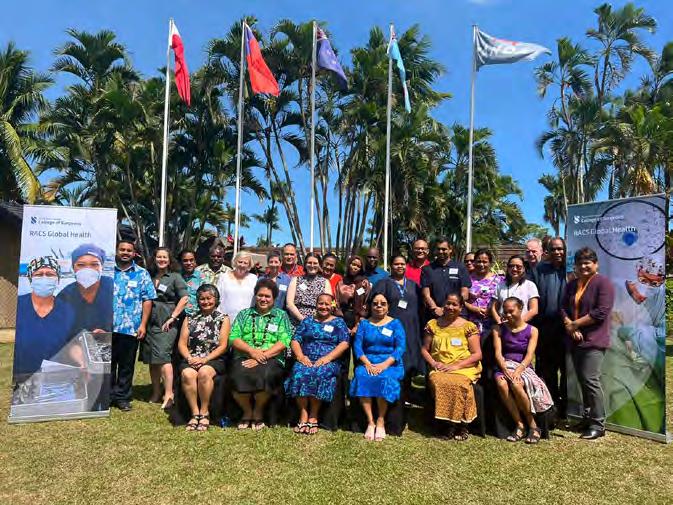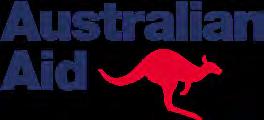
3 minute read
College runs Pacific Island reflection workshops
College runs Pacific Island Program reflection workshops
Since 1995, the Royal Australasian College of Surgeons (RACS) has worked with health partners in Pacific Island countries to improve access to surgical care through the Australian Aid-funded Pacific Islands Program (PIP). The program aims to increase access to surgical care across 11 Pacific Island countries. It does this by providing education and training to Pacific surgeons, nurses and other health workers, and by supporting surgical teams to deliver surgeries locally. The PIP is a component of the Department of Foreign Affairs and Trade’s (DFAT) regional program, the Pacific Clinical Services and Health Workforce Improvement Program. This also includes the activities of the two other implementing partners—the Pacific Community (SPC) and Fiji National University (FNU). The current phase of RACS PIP ended in September 2022. The RACS Global Health team has been working with DFAT, SPC, and FNU to design the next phase of the regional program. In late August, two reflection workshops were held by RACS Global Health in Nadi, Fiji, to reflect on the previous phase of the program. The first was with RACS implementing partners for the PIP, SPC and FNU. This workshop provided an opportunity to reflect on the health of these partnerships and on ways of working together. The second workshop was held with the 11 Pacific Island countries’ Directors of Clinical Services (DCS) and Pacific Heads of Nursing (PHON) representatives. The workshop provided them with the opportunity to reflect on the effectiveness and impact of the PIP in their country. Both workshops provided RACS with important feedback on the strengths, weaknesses and achievements of the previous phase, which will be used to improve the next phase of the PIP. In Fiji, RACS Fellows and Global Health staff were also invited to attend and present at the DSC and PHON meetings, convened by SPC. These important forums provided RACS with insights on the latest clinical service developments and ongoing challenges in the Pacific. One key overarching theme to emerge from the meetings was the need to increase health workforce capacity in rural areas, including the need to address clinical capacities, which are further stretched by the COVID-19 pandemic, resulting in staff sustainability issues and burnout. Unreliable internet access and the impact it has on service delivery and training was another common theme that emerged. The number of requests from the region for scholarship, equipment and biotechnology capacity support and funding was also noted by RACS. The Pacific countries shared many examples of the power of partnerships and the importance of shared learning, collaboration and mentoring across the region. These included the establishment of Pacific Island Associations and Partnerships. A great example of this is how RACS—in collaboration with the Australian College of Perioperative Nurses (ACORN)—has supported the Pacific Island Operating Room Nursing Association (PIORNA) with the development of the Standards of Perioperative Nursing in Pacific Countries and Territories. RACS also worked with Interplast, who specialise in deploying volunteer plastic and reconstructive surgeons, to establish learning with a manual and online training module. These manuals and accompanying module, were launched by PIORNA in Fiji, with the objective of helping improve the processes of care and patient outcomes in Pacific countries.
Advertisement
The Pacific Islands Program is an Australian Aid initiative implemented by RACS on behalf of the Australian government and delivered in partnership with the Pacific community, Ministries of Health, specialist colleges and associations, and partners. If you are a health professional interested in volunteering or supporting RACS Global Health, please contact volunteer@surgeons.org
Image: Pacific Island Countries’ Directors of Clinical Services (DCS) and Pacific Heads of Nursing (PHON) representatives Reflective Workshop











